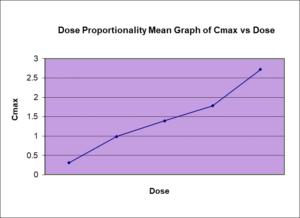BioPharma Offers Renowned Human Abuse Potential (HAP) Studies and Abuse Deterrent Expertise

Human abuse potential (HAP) studies, also known as human abuse liability testing, have gained relevance as the FDA becomes increasingly interested in knowing whether or not new drugs could be misused for recreational purposes.
Dr. John Oldenhof, Ph.D., Chief Scientific Officer at BioPharma Services, has decades of experience in HAP clinical studies. According to Dr. Oldenhof, there are essentially two types of human abuse potential studies. One is a more traditional study that is required for new chemical entities. If this new drug is known to target the central nervous system (CNS), then the FDA wants to know if it has the potential to attract the recreational drug community because of its effects.
The second type of HAP study is focused on abuse-deterrent formulations. This type of HAP study would focus, for example, on opioids, the use of which has risen to epidemic levels in the United States, making it a prime subject for human abuse potential research.
“You take a known drug, or a class of drugs that you know are misused, and then you formulate them in such a way that people will want to misuse that new formulation less,” Dr. Oldenhof says.
Some companies consider stimulants to fall under this type of HAP study, but the FDA currently does not have any regulations in place beyond opioids. Opioids have been around for millennia, but the development of these drugs predates the abuse-deterrent formulation requirements.
While some companies take the approach of formulating extended (non-immediate) release formulas to combat human abuse potential, they also must consider the possibility that people may crush it and/or try to take it in other ways. Therefore, it becomes crucial to also test how the drug can be formulated to prevent such routes of administration. One of the possible solutions is to formulate the opioid so that the drug breaks down into a non-administrable substance when people try to, for instance, snort it.
“The problem with opioids is that you’re not necessarily creating the abuse-deterrent formulation for the end user, which is supposed to be the patient,” Dr. Oldenhof says. “You’re expecting the patient just to take it normally.” However, in the U.S., challenges arise with insurance companies that don’t want to pay higher costs for specialty medications that work the same as others taken normally.
Clinical HAP Studies Expertise Matters
Since 2003, Dr. Oldenhof has been involved in HAP research. One HAP study that BioPharma conducted for a company in East Asia, Dr. Oldenhof recalls, “The safety aspect of the new drug all looked very good”. “The only significant response we received was that every morning all the participants were asking, ‘So when are we getting that next dose? We really like this.’ I’ve never seen such a strong signal for something that might be misused.”
This is one example of when human abuse potential testing is critical for the commercialization of a drug. In these cases, another similar medication is chosen as a point of comparison to conduct a blinded abuse liability study to determine the effects of the new drug.
BioPharma Services has the HAP study experience and expertise in designing the methodology for this type of investigation, which requires knowledge in pharmacology, workings of the central nervous system, and the potential targets of the drug under study.
Depending on whether a drug is potentially a sedative, stimulant, psychedelic or painkiller, each HAP study would have special considerations. In the example of an opioid, the FDA is very specific on what the characteristics need to be and how they show up on the label. All of these studies allow you to make certain claims in your label, which you can then use for marketing. BioPharma provides the knowledge, skill and capabilities to guide you through the process.
Not only does Dr. Oldenhof bring more than 18 years of experience managing all aspects of drug development research, but his expertise also includes the development of novel methodologies, innovative study designs and direct collaboration with the U.S. FDA to advance HAP studies and pharmacometrics analyses.
In addition to Dr. Oldenhof, Dr. Isabella Szeto, MD, one of BioPharma’s Principal Investigators, brings more than 13 years of experience conducting Phase I clinical trials. Dr. Szeto has conducted more than 150 clinical studies on various central nervous system products to evaluate their abuse liability or abuse potential.
BioPharma’s Longstanding Clinical Study Execution Team
BioPharma has the substantial infrastructure that is necessary to conduct human abuse potential testing during Phase 1 Clinical Trials while following Good Clinical Practice (GCP) principles. Specifically, HAP studies are complex studies that require additional care in ensuring that the data is clean and can be used at the end for analysis.
While some CROs may be able to run a HAP study and collect the required survey responses, the end results could vary drastically in quality. A better approach would be having the scientific team at BioPharma support with the Phase 1 Clinical Trial design. The outcome would be a study that is practical, meaningful and sensitive to the outcomes for which the sponsor is looking. When selecting a CRO to run your HAP study, ask yourself a few questions.
Does the organization have the capability to consistently manipulate the drug in the way that is required? Have the staff been trained to properly instruct the subjects so that they know how to interpret the questions? When subjects feel a certain way, are they able to answer the questions that are consistent with the way they feel? These are only some of the many considerations that are important to obtain high-quality data for your Hp study.
Since 2007, BioPharma has conducted HAP studies on various products spanning opioids, narcotics, stimulants, sedatives, and cannabinoids. To support these HAP studies, BioPharma maintains a database of recreational drug users, healthy volunteers and other subjects for conducting these HAP studies.
With our extensive experience in analgesic, antidepressants, stimulants, anesthetics, anti-Parkinson agents, anticonvulsants, etc., we have an existing relationship with Ethics Review Boards experienced in review and approval of Human Abuse Potential trials. With BioPharma’s expertise, experience, resources and clinical trial sites – including one in Toronto, with a large population and catchment area that has made it a great place to do HAP research for nearly 20 years – we are your best research partner for HAP studies.
About BioPharma Services
Find out why BioPharma might be the right partner for you! Learn more about BioPharma Services and the wide array of services we provide.
BioPharma Services, Inc., a Think Research Corporation and clinical trial services company, is a full-service Contract Clinical Research Organization (CRO) based in Toronto, Canada, specializing in Phase 1 clinical trials I/IIa and Bioequivalence clinical trials for international pharmaceutical companies worldwide. BioPharma has clinical facilities both in the USA and Canada with access to healthy volunteers and special populations.



